What is CAN (Controller Area Network)?
| Controller
Area Network (or CAN) is the latest communication system within the automotive
world. At its simplest level, it can be thought of as a means of linking
all of the electronic systems within a car together to allow them to communicate
with each other.
As computerisation within a car increases, so to does the number of different electronic systems. The information recorded and processed by each one is often used by one or more others - hence the requirement for a standardised means of quickly passing information between them. This requirement led to the development of CAN.
The CAN technology was first developed by Bosch for industrial use, but was quickly recognised as a powerful system for in-car use. Some manufacturers were actually using the technology within their cars from as early as 1992, e.g. Mercedes.
Within the car diagnostics world, on certain 2003 and newer cars, it is possible to access the CAN network (and communicate with various onboard systems) through the 16-pin OBDII/EOBD diagnostics port. Prior to 2003, manufacturers were required to provide non-CAN interfaces under the OBDII/EOBD legislation, e.g. PWM, ISO etc. Many of these newer cars, e.g. Ford's latest range, Mazda RX-8, the latest Vauxhall Vectra, offer only the CAN protocol/interface as a means of communicating with the engine-management system. This will actually be mandatory on all cars by 2008. Whilst many of these cars might still be under the manufacturer warranty, anyone investing in diagnostic tools for the long term should ensure that their tools support the CAN protocol. The CAN protocol now forms part of the OBDII and EOBD standards. Manufacturers could begin implementing CAN for engine/emissions diagnostic purposes in 2003 and must implement it by 2008.
The CAN protocols and interface run at roughly fifty times the speed of the earlier OBDII/EOBD protocols. This speed improvement, combined with the addition of new diagnostic parameters, will give technicians the ability to see data faster and gain more information from newer cars than is currently available. The original OBDII/EOBD protocols (J1850-PWM, J1850-VPW, ISO-9141 and ISO-14230) did help reduce the number of tools required for engine/emissions fault diagnosis, but by allowing 4 protocols there was still a great deal of confusion, and over-complexity of tools. Simplifying
this to a single protocol can only lead to reduce this confusion, and
the cost of diagnostic tools. Which diagnostic port pins are required for CAN? The CAN system uses pins 6 and 14 in the 16-pin diagnostic socket:
The car will also need to have pins 4 and 5 (ground pins) and pin 16 (12 Volt supply).
Nearly all of the tools we sell now support CAN.
A few examples of 2003/4 model cars that require CAN-enabled tools are: Ford Fiesta Most new models from all manufacturers from approx. 2004 - CAN must be used for EOBD engine diagnostics by all manufacturers by 2008. |
-

Ross-Tech VCDS HEX-V2 USB Package (3 VIN)
£ 225.00 -
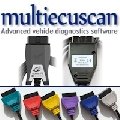
MultiECUScan Diagnostic Package (USB)
£ 129.95 -
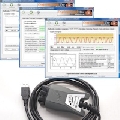
Gendan EngineCheck Pro USB package
£ 99.95 -

VW Audi USB KKL Diagnostic Interface Cable
£ 19.94 -

OBDLink LX EOBD OBD-II Bluetooth Interface
£ 94.96 -
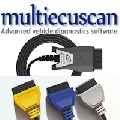
MultiECUScan Package (CAN cars only)
£ 112.94 -

Ross-Tech VCDS HEX-V2 USB Package (10 VIN)
£ 299.00 -
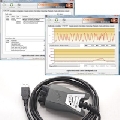
USB Engine package for 2001+ petrol, 2004+ diesel
£ 69.95 -

OBDLink MX+ EOBD OBD-II Bluetooth Interface
£ 129.95 -

Foxwell NT301 Diagnostic Scan Tool
£ 69.00 -

Ross-Tech VCDS HEX-V2 USB Package (Unlimited VIN)
£ 499.00 -
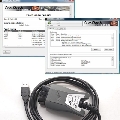
VauxCheck Software with vLinker FS USB interface
£ 64.94 -

MultiECUScan Multiplex Package
£ 360.00 -

Ross-Tech VCDS HEX-V2 Enth. Plus Bundle (10 VIN)
£ 319.00 -

Foxwell NT530+ Full Systems Scan Tool - BMW & Mini
£ 164.00 -

VauxCheck Diagnostics Software download
£ 30.59 -

Foxwell NT530+ Full Systems - Peugeot/Citroën
£ 164.00 -

MultiECUScan Coloured Adaptor Cables
£ 31.94 -

Foxwell NT530+ Full Systems Scanner - Porsche
£ 164.00 -

Opel-Scanner for Vauxhall and Opel cars
£ 199.00 -

EngineCheck Pro Diagnostics Software Download
£ 57.14 -

Ross-Tech VCDS HEX-NET Pro Plus Bundle (Unlimited)
£ 649.00 -

OBD-II / EOBD Extension Cable - 3 metre
£ 14.95 -

10-pin Adapter lead for GS911 with 16-pin plug
£ 19.94 -
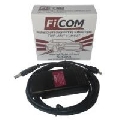
FiCOM Advanced Fiat & Alfa Diagnostics Package
£ 395.00 -

EngineCheck Pro Diagnostics Software Upgrade
£ 29.57 -

Foxwell BT100 12 Volt Battery Analyser
£ 44.95 -

Foxwell NT530+ Full Systems Tool - Hyundai / Kia
£ 164.00 -

OBDLink CX Bluetooth Interface for BimmerCode
£ 79.96 -
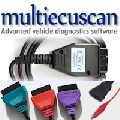
MultiECUScan Package (Non-CAN cars only)
£ 85.00 -

Foxwell BT715 12 / 24 Volt Battery Analyser
£ 85.00 -

Ross-Tech VCDS HEX-V2 USB 3-VIN Package (No Case)
£ 222.00 -

MultiECUScan Hardware Only Bundle
£ 80.00 -

Ross-Tech VCDS HEX-NET Package (Unlimited VIN)
£ 625.00 -

Foxwell NT530+ Full Systems Tool - Vauxhall / Opel
£ 164.00 -

UniCarScan UCSI-2100 Bluetooth Interface
£ 51.50 -

Ross-Tech VCDS HEX-NET Interface Package (10 VIN)
£ 430.00 -

Foxwell NT530+ Full Systems Scan Tool - VAG cars
£ 164.00 -

OBD-II / EOBD Extension Cable - 20cm
£ 12.50 -

Foxwell NT530+ Full Systems - Jaguar Land Rover
£ 164.00 -

MaxiECU for Vauxhall and Opel cars - Wireless
£ 140.00 -

Foxwell NT530+ Full Systems Scan Tool - Honda Cars
£ 164.00 -

EngineCheck Diagnostics Software Download
£ 30.59 -

Security Gateway bypass adaptor for FCA vehicles
£ 24.95 -

GS-911 USB Enthusiast Package 16-pin
£ 230.00 -

Ross-Tech VCDS HEX-V2 USB Home Plus Bundle (3 VIN)
£ 245.00 -

Foxwell NT530+ Full Systems - Mercedes & Smart
£ 164.00 -

GS-911 WiFi Enthusiast Package 10-pin
£ 305.00
